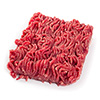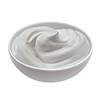Sign In Chef

By using our free meal planner (and the rest of spoonacular.com) you have to agree that you and only you are responsible for anything that happens to you because of something you have read on this site or have bought/cooked/eaten because of this site. After all, the only person who controls what you put in your mouth is you, right?
Spoonacular is a recipe search engine that sources recipes from across the web. We do our best to find recipes suitable for many diets — whether vegetarian, vegan, gluten free, dairy free, etc. — but we cannot guarantee that a recipe's ingredients are safe for your diet. Always read ingredient lists from the original source (follow the link from the "Instructions" field) in case an ingredient has been incorrectly extracted from the original source or has been labeled incorrectly in any way. Moreover, it is important that you always read the labels on every product you buy to see if the product could cause an allergic reaction or if it conflicts with your personal or religious beliefs. If you are still not sure after reading the label, contact the manufacturer.
We also attempt to estimate the cost and calculate the nutritional information for the recipes found on our site. Again, we cannot guarantee the accuracy of this information. Additionally, our nutrition visualizer that suggests that you limit sodium, sugar, etc., and get enough protein, vitamins, and minerals is not intended as medical advice. Similarly, our health tips are based on articles we have read from various sources across the web, and are not based on any medical training. The team behind spoonacular does not possess any medical qualifications and the information may be found to be incorrect or out of date based on future research. If you need help planning your diet or determining which foods (and recipes) are safe for you, contact a registered dietitian, allergist, or another medical professional.
Spoonacular is not responsible for any adverse effects or damages that occur because of your use of the website or any information it provides (e.g. after cooking/consuming a recipe on spoonacular.com or on any of the sites we link to, after reading information from articles or shared via social media, etc.)
×$2.16 per serving

2 likes

Ready in 45 minutes

Spoonacular Score: 78%
The recipe Indian-Spiced Ground Beef Main Dish can be made in roughly 45 minutes. One serving contains 466 calories, 25g of protein, and 36g of fat. This recipe serves 4. For $2.16 per serving, this recipe covers 30% of your daily requirements of vitamins and minerals. 2 people were impressed by this recipe. It is a reasonably priced recipe for fans of Indian food. It works well as a main course. It is a good option if you're following a gluten free and ketogenic diet. Head to the store and pick up spinach, mint leaves, chillies, and a few other things to make it today. It is brought to you by Foodista. Overall, this recipe earns a solid spoonacular score of 76%. If you like this recipe, take a look at these similar recipes: Indian-Spiced Ground Beef Main Dish, Beef Stir-Fry Salad Main Dish, and Picadillo Cubano (Cuban Ground Beef Dish).
Riesling, Gewurztraminer, and Chenin Blanc are great choices for Asian. The best wine for Asian food depends on the cuisine and dish - of course - but these acidic whites pair with a number of traditional meals, spicy or not. You could try Ste Chapelle Special Harvest Riesling. Reviewers quite like it with a 5 out of 5 star rating and a price of about 15 dollars per bottle.
 Aromas of fresh sliced peaches, apricots and citrus give way to flavors of honey, peaches, and orange peel. The wine is sweet but well balanced with crisp acidity and a long finish of honey anf fruit.
Aromas of fresh sliced peaches, apricots and citrus give way to flavors of honey, peaches, and orange peel. The wine is sweet but well balanced with crisp acidity and a long finish of honey anf fruit.
» Get this wine on Amazon.com








































Read the detailed instructions on Foodista.com – The Cooking Encyclopedia Everyone Can Edit